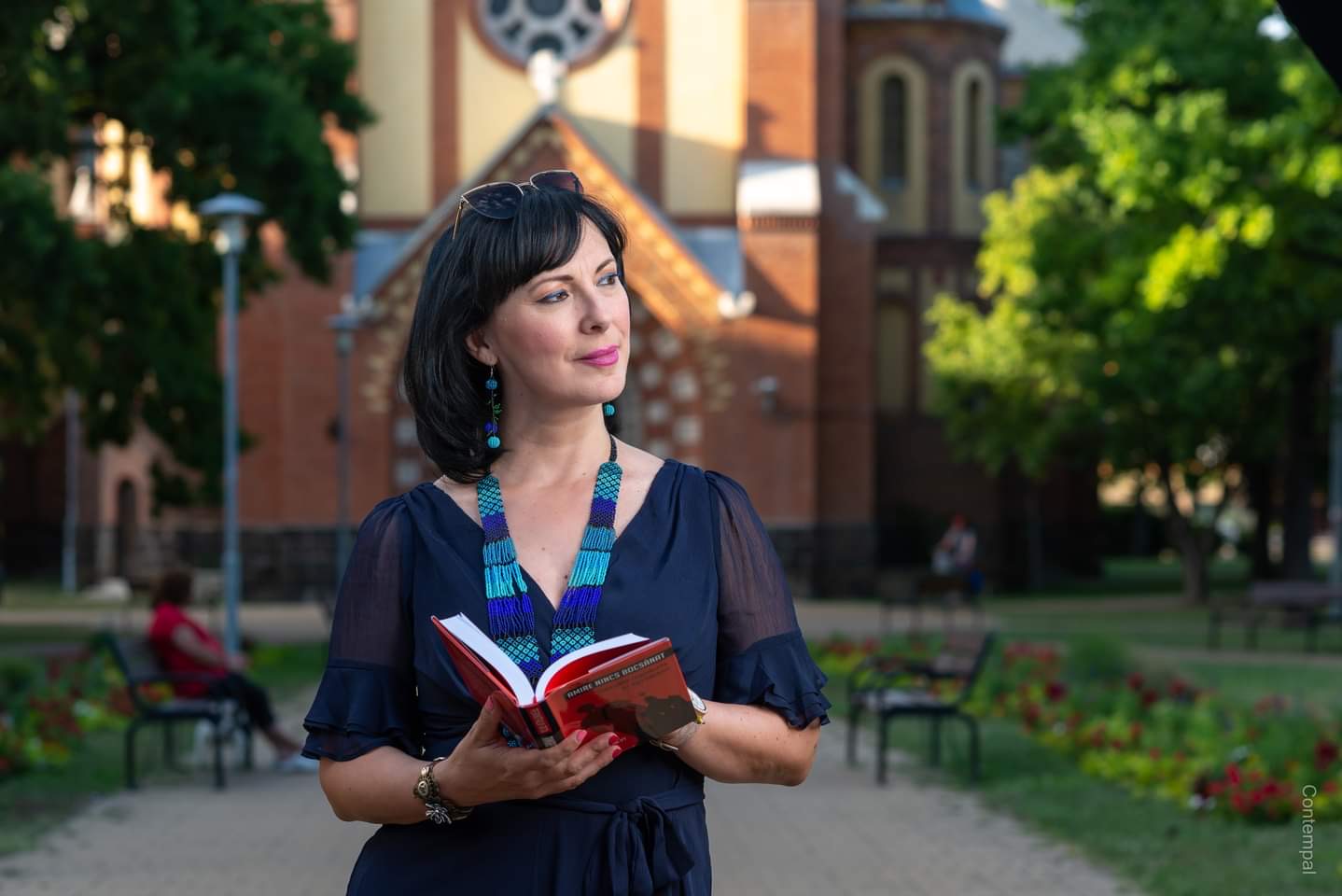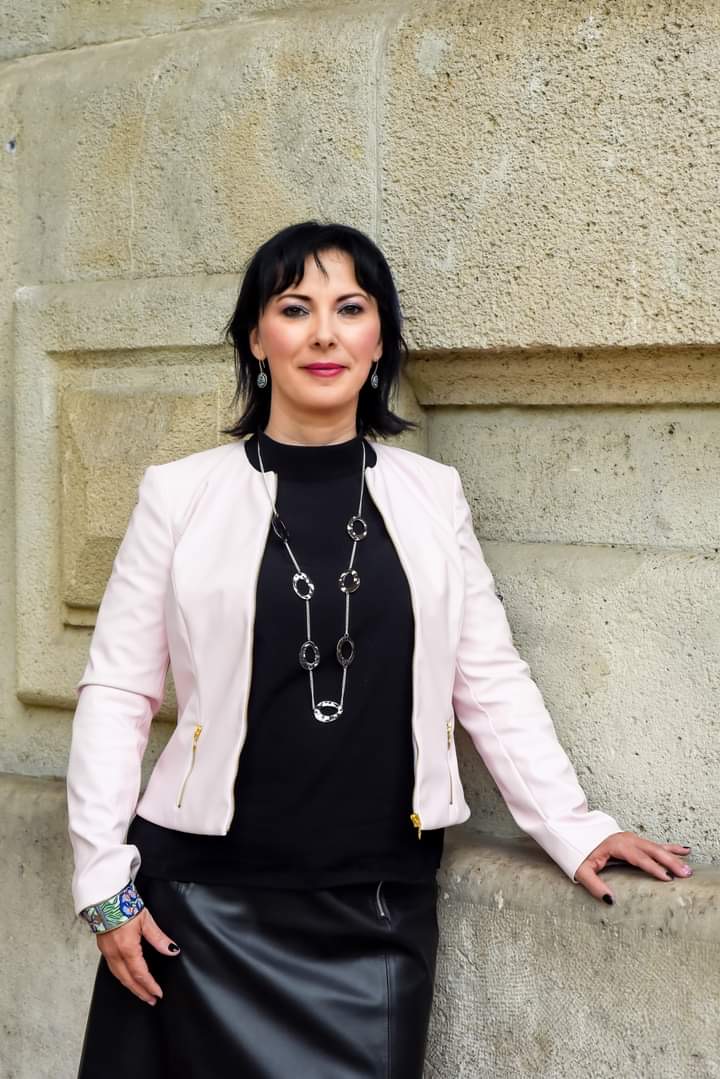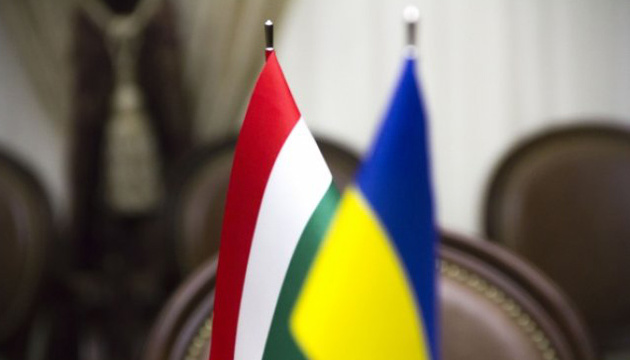
"The day will come when the war ends. But neither Ukraine nor Europe will ever forget that there is one nation in Europe — we, the Hungarians —and this nation has Prime Minister Viktor Orbán, who did everything so that Ukraine could not defend its freedom that it could not prevent the death of innocent Ukrainian children. And this flagrant sin will be engraved in the souls and hearts of Ukraine very deeply and for many centuries. That is why I would like to separate myself from this prime minister and his multimillion-dollar putin camp. That is why I consider it very important to say that many people in Hungary know who exactly the victim is in this war and who the killer-aggressor is. And those who know it is a moral duty to stand on the victim's side! Glory to the heroes of Ukraine!"
Almost 40,000 subscribers saw this post on Facebook by Rita Perintfalvi, a public activist, writer, doctor of theology, and teacher at the Austrian University of Graz. Ms. Perintfalvi sharply criticizes the Orbán regime, admires the courage of Ukrainians, and in every way advocates the opinion that Ukraine should be helped among Hungarians and Europeans in general.
We spoke with Ms. Rita about Orbán's authoritarian regime, Hungarians' views, and support for the Ukrainian people.
On propaganda and Orbán's government
Rita Perintfalvi begins our conversation with words about what political life in Hungary looks like now and how a center of pro-putin politics managed to appear in Europe:
— I believe freedom is lost in this country. We live in a political system called a hybrid or authoritarian regime in political science. It is a system driven by the politics of hatred, the complete division of society, and constant bullying to achieve that people treat each other like wolves. This system always needs a new enemy. Sometimes, this enemy is inside the country, sometimes outside, especially in Brussels. Hatred also started in connection with russia's war against Ukraine.
The activist says that Hungary has started cultivating "inflaming emotions about the victim" and echoing the russian aggressors with the same russian propaganda.
— The situation is obvious, black and white. Still, Orbán's policy can turn reality upside down and manipulate the entire country with the help of chatter with false russian propaganda. Since 2015, I have been actively participating in the public life of Hungary, more and more intensively and more and more visibly. Now, I have already assumed the role of shaping public opinion. I believe that this is a huge moral responsibility. That is why I deal with such matters and cannot be silent. With the mentioned post, I wanted to convey that there is not only Viktor Orbán's Hungary, but millions of us still accept reality as reality. It is clear who the victim is and who the aggressor is in this war.
Rita Perintfalvi compares russia's war against Ukraine and how the Hungarian authorities cover it to sexual violence and its perception in society:
— Last year, I wrote a book about sexual and spiritual abuse in the Hungarian Catholic Church. I personally got to know the stories of 55 victims. These cases have the same dynamics. It is always clear who is the victim and who is the culprit. And yet, the roles often change: the guilty are acquitted, and the victims are blamed. They don't believe they are victims. This war is just such a case. In Hungary, political propaganda suggests that the Ukrainians provoked the entire war and are responsible for it. I also saw it in church life, where they lied for decades and hid the truth for decades. Well, actually, that's why we have to finally stand up for the truth, not only for the victims of abuse within the church but also for the truth of Ukraine! For me, it's the same thing: a moral obligation. Does it take courage? Definitely. Even though I'm driven by internal compulsion, I don't know how to negotiate with evil.
— Why are 3 million voters loyal to Orbán in Hungary, who provide him with a two-thirds majority? How can this be explained?
— If we look at the parliamentary elections of April 2022, we will see that Orbán could mobilize 3 million people, 2 million voted against him, and approximately 3 million did not go to vote. Therefore, the group of passive people is extensive. It is a severe problem why they don't speak their mind and why they don't stand on the side of democracy and freedom. Among those who do not vote, there is a huge share of people between the ages of 18 and 30, a generation that is somehow not in politics, although according to studies, this age group is much more critical of the Orbán regime than the older ones. Why was the result so glaring? Because Viktor Orbán no longer builds his power on only one party but on the whole system: this is the NER (National Cooperation System, a kind of social contract, the Government of Hungary), which he had created for 12 years, weakening the political opposition.
Now everything that is happening in this right-wing, authoritarian-populist regime is systemic. Democracy has not only suffered in certain areas but also that the Hungarian government is working on its deliberate and systematic reduction. This was also announced by the European Union last September, which is why they withdrew or, under certain conditions, froze almost 12.5 billion euros in financial assistance.
In the current opposition, there is a strong counter-selection. Few talented politicians are attracted to politics where they will be in permanent opposition. At the same time, FIDES (the Hungarian party led by Viktor Orbán – ed.) cleverly integrates its people here and there to renew the party from within. The situation with the media is similar. There is no doubt that certain topics and issues are taboo, which also applies to independent media. Some people are simply never invited on the air. I feel that the time has come for the emergence of a completely new political generation, for whom politics is impossible without ethics, who want to become politicians not for their enrichment but for the sake of serving the country. If this happens, there will be real changes.
About the change of power in Hungary
— What can be the future of Hungary? Is a change of power possible?
— It is possible. The only question is: when? Certain processes have begun — I don't know how visible it is from Kyiv — for example, a multi-month series of teacher protests due to the educational crisis, reflecting the industry's complete decline. There is a huge shortage of teachers in public education. Freedom of teaching has been completely abolished. Teachers cannot choose curricula, and the government uses textbooks to spread its political demagoguery even among young children. These are the manipulation techniques of the educational sphere. All this continues at the higher education level with the privatization of state universities and their management through foundations. Only five independent universities remain out of 38 state universities. Fund management is almost entirely in the hands of FIDES people, whom no one will remove even in the event of a change of government. Science no longer has autonomy, university courses are outlawed, or entire universities are persecuted in countries.
Another critical industry — health care — is also in terrible condition. My Austrian friends often come to visit me. Once, I had a small accident, and I had to go to the hospital, and one of my friends accompanied me. When he looked around the hospital, he asked in shock: "Rita, are you serious that people are being treated here?" During COVID-19, I talked to many nurses who said that many people died in inhumane conditions and that the hospital was like a sanatorium. Of course, doctors could not talk about it publicly because they would commit a crime by spreading panic.
Besides, a huge economic crisis is coming up, slowly affecting Hungary, and we are not ready for it. So far, Viktor Orbán ruled during the economic boom, he was fortunate, but now it is over. I feel that this country is under a kind of hypnosis supported by propaganda and brainwashing. Freedom of the press has been almost completely abolished. They (Hungarian authorities, ed.) can keep their voters in a soap bubble. No other opinion can reach them. So far, it has worked because many have actually gotten better in the last 12 years than before. But the aggravation of the economic crisis may break the propaganda. I can't imagine that you can fill a hungry stomach with one lie. And then, perhaps, there will be an awakening, although, unfortunately, it will be quite painful.
— What alternative to Viktor Orbán do you see in Hungary?
— I am a little skeptical about it. As a person who shapes public opinion and communicates with many people, I believe that the opposition parties have lost credibility. This is also evident from the fact that there have been several by-elections recently and the Fidesz party still won by a huge margin. The reason for this is not that FIDES voters are still loyal to it, but that opposition-minded voters do not go to vote at all because they no longer trust the opposition. The six-party opposition coalition that went to the elections suffered a huge failure.
But, on the other hand, I also see a fundamental positive process: many grassroots initiatives have been launched. Thus, communities, resistance groups, student organizations, etc., are being created. I also created a civic initiative called "Freedom Circle," which meets every two months, and we always discuss some relevant political topics and, in the process, build a community. Applications for the next event, which will take place on January 23, have already been submitted by 170 people. That is, the demand for it is huge. And this is just one concept. I see that other citizens are also taking the initiative. Small islands are being born.
Once István Bibó (Hungarian philosopher and public activist, ed.) said that small circles of Freedom should be created, and thus it is possible to survive the dictatorship. And these little circles will eventually come together, and we can move the system. In other words, I would not necessarily expect real changes from the current political parties sitting in the parliament but rather from these grassroots initiatives. At our meetings, I see that people have not only a need for change but also a desire to create it. There is growing discontent, irritation, and anger among the Hungarian people, and the current opposition parties cannot channel it because they are no longer trusted. I do not see the prospect, but I still believe that these small circles will be able to strengthen in the next 3-3.5 years and make a driving change in 2026.
About Hungary and Ukraine. What is the future here?
— How do you see the further development of Hungarian-Ukrainian relations? Unfortunately, today the relations between the two governments are not at zero level, but much lower.
— We also see it, and I believe that such communication, which Viktor Orbán's government has allowed itself concerning Ukraine, where a significant number of the Hungarian minority lives, is a huge political mistake. With this, he extremely damaged the situation of the Hungarians there. I can't even imagine what this means for them every day, how ashamed they must be of what the Prime Minister of Hungary says, how he defends russia and blames Ukraine. I believe that Ukrainians are perhaps more generous than Hungarians, even if we don't deserve it. Many are very ashamed, and I frankly say I am ashamed of my government. Of course, this policy and this communication need to be changed at the government level. So we should make a friendly gesture now that will serve for rapprochement and reconciliation between the two countries. It would be vital if they did.
— You mentioned the Hungarian minority in Ukraine. We should note that, in general, 400 Ukrainian-Hungarians are fighting at the frontline in the southeast of Ukraine today. Since February 24, 2022, 12 Ukrainian-Hungarians have died in the fight against russia. No one violates the rights of the Hungarian minority in Ukraine — that is a fact. The biggest problem of Orbán's policy regarding the Hungarian minority in Ukraine is that he is trying to shape it into a political force, direct it to himself, use it for his purposes, and buy them, as he does in the provinces of Hungary. Since your life is closely connected with Austria and there is also a significant Hungarian minority there, I want to ask how the Hungarians there treat Austria. In particular, some parts of Transcarpathia, Ukraine, were partially "ghettoized" by Orban's policy, especially in the last 12 years. How is this issue solved, integration? Do the Hungarians of Burgenland feel Hungarian but citizens of Austria?
— There is no dual citizenship in Austria. Anyone who becomes a citizen of another country loses his Austrian citizenship. In addition, Austria fully complies with the principles of the European Union regarding respect for minorities. Hungarians in Burgenland have primary and secondary schools where they can learn the Hungarian language. In Burgenland, Hungarian can also be used for official purposes, but nowhere else. I was born in the city of Szombathely (13 km from the Austrian border). I have been there many times. I gave interviews to the Hungarian-language press in Burgenland. I had students from Burgenland at my university, but the language of higher education is necessarily German. Everyone learns German because this is the only way to become part of Austrian society. This is the only way of integration. It is basic. Fortunately, the situation of Hungarians in Burgenland is not worsened by Viktor Orbán's policies, compared to Hungarians in Ukraine or, for example, Romania.
In the future, Ms. Rita plans to continue to fight against populism in Hungary through her blog, books, and grassroots initiatives:
— Now, I teach at the University of Graz (Austria), and I am here now while I am talking to you. But I have not left my country, and I go home every week, and my husband and I live there. I see the decline of democracy, human rights abuses, and politics of hate at home, so I have an inner desire to do something about this phenomenon. I'm not sure I'll achieve anything extraordinary, but at least I'll do what I can.
Liberalism is already a demonized term here, and freedom in Hungary is a disgrace. I feel that Hungarian society is an offended society. Politics abuse it every day. Therefore, we need social therapy and treatment. This requires people who have both heart and soul. This should also be implemented in Hungarian social life. This country needs love. In addition to harsh political reviews, I try to teach people to love.
As a Hungarian and a European, I feel that Ukraine is fighting for Europe and us. I do not think the power-loving russian imperial vision would only be satisfied with Ukraine. Since NATO countries surround it, it would find a reason to quickly attack Poland and then Hungary. So when Ukraine fights heroically, it fights for us, and I really want to thank you for that. I would like the Ukrainian people to know that Viktor Orban is not equal to Hungary. There is a different Hungary whose heart beats together with the heart of the Ukrainian people.
Tibor Tompa interviewed







